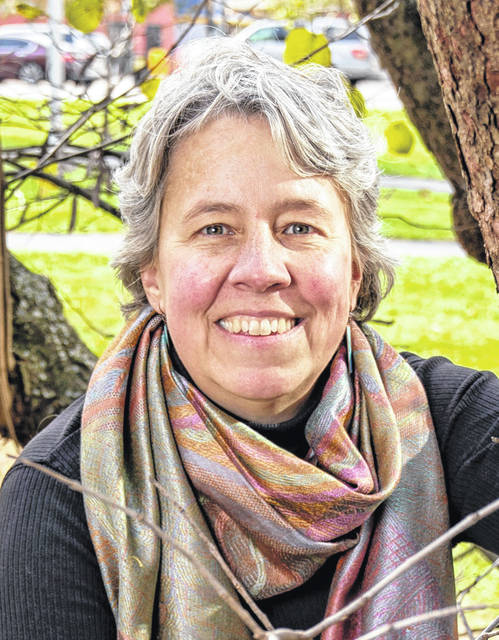
An ecologist explained connections between the novel coronavirus, horseshoe bats, a mysterious intermediate host, human behavior, and deforestation in Ohio Wesleyan University’s latest online class on the global pandemic.
“COVID-19 is the infectious disease caused by the novel coronavirus, whose scientific name is SARS-CoV-2 (SARS stands for Severe Acute Respiratory Syndrome),” said Laurie Anderson Wednesday. A former professor of the year in Ohio, she is plant ecologist and professor of botany-microbiology at Ohio Wesleyan.
“This coronavirus is new, but coronaviruses are a large family of viruses known to cause illness in humans and other animals,” Anderson said, adding the novel coronavirus combines the harmful affects of the SARS and MERS viruses, and is as contagious as the flu, “and that’s what’s causing so many problems for us.”
She said that viruses and bacteria are both germs that cause human illness, and she explained how they differ. Using slides, Anderson showed how a virus can infect, mutate and evolve.
“So far, this virus is changing less than the flu virus or HIV,” she said. “This is good news for vaccines.”
One slide, a map of the world created by Nextstrain, showed “real-time tracking of pathogen evolution” — how different versions of the coronavirus have reached the United States from both China and Europe. In January, a Chinese researcher found that “the genetic code of this coronavirus is 96% identical to that of a coronavirus found in horseshoe bats.” As the reservoir host, the bat does not get sick from the virus.
She said there is a hypothesis that another mammal called the pangolin may be the intermediate host for the virus to mutate in before the virus is transmitted to humans. It is possible the bats, pangolins, and humans came in contact together in a marketplace, but it is unknown.
Anderson said the disturbance and destruction of wildlife habitats makes animals come into contact more with humans, increasing the likelihood of disease. “When animals are stressed and forced to migrate, viral infections may worsen.” She cited case studies for this ecological connection for pandemics that included Ebola in Africa, as well as Lyme disease in the United States. Climate change is another component in what she called a complex web of interaction.
“Deforestation also increases human access to remote areas and wildlife,” Anderson said. However, it is uncertain if this particular coronavirus pandemic was triggered by a specific land-use change, she said.
For years, experts have predicted a global pandemic from a virus in a wild animal, she said. That doesn’t mean we should exterminate bats, which have many benefits such as being pollinators and eating insects. Anderson said pandemic prevention can be achieved on an ecological level by preserving forests and natural habitats, reducing contact with animals, eliminating poaching, and avoiding the purchase of wildlife products at gift shops.
In response to a question, Anderson said humans have transmitted COVID-19 to zoo animals and pets and not the other way around. “At this point, we need to be more cautious of other humans than we do of domestic animals and pets.” In the future, she hoped there would be more testing of plants and animals to stave off potential pandemics.
Anderson’s talk concluded the first week of a free 10-week course open to students and the public alike called “We’re in This Together: An Interdisciplinary Exploration of the Coronavirus Pandemic.” Anderson said the 1,000-plus people who are participating in the course are now part of “OWU’s pandemic response team.” Anderson wants people to “Focus on facts, not fear. Listen, think, act. Not back to normal, back to better.”
She began by saying, “I know this is a ridiculous time really for everyone in the world, and I want to thank you for taking the positive step of embracing your curiosity, your desire to learn about the situation we’re in, and for deciding to be part of this learning community.”
For more information, visit www.owu.edu/COVIDclass.


